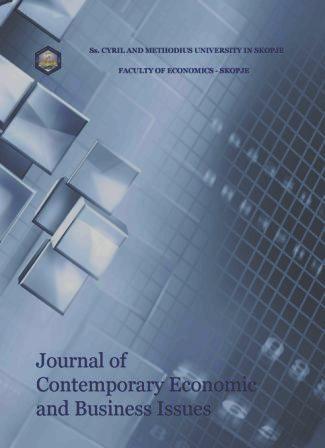THE IMPACT OF HUMAN CAPITAL ON THE ECONOMIC GROWTH IN MACEDONIA
Клучни зборови:
economic growth, education, GDP per capita, health, MacedoniaАпстракт
The role of human capital in a country’s growth process is of great importance. As a separate factor of production, it contributes to solving key economic problems in the process of globalization, especially in economies based on knowledge. The aim of this paper is to illustrate the impact of human capital on the economic growth of Macedonia in the period from 2000 to 2016 through the usage of an econometric analysis of time series of human capital indicators which are widely accepted in theory and empirical research. It is about education and health, i.e. the educational qualifications of employees and their life expectancy. For that purpose, a regression analysis followed by an examination of stationarity of time series is used, as well as the necessary conditions for selecting the best model from all of the available alternatives. The results show that there is a positive link between human capital and economic growth in Macedonia. Also, educational qualifications and life expectancy have a positive effect on GDP per capita in Macedonia for the analyzed period. All of the variables show statistical significance, but higher education qualifications have proved to be an indicator of human capital with the greatest impact on the economic growth in Macedonia. Therefore, the economic policy-makers should accept and promote education and health as healthy economic investments which raise not only the quality of life, but also increase the productivity of the market and thus the output in the country.
Референци
Преземања
Објавено
Издание
Секција
Дозвола
Authors retain copyright of the published papers and grant to the publisher the non-exclusive right to publish the article, to be cited as its original publisher in case of reuse, and to distribute it in all forms and media.
Authors are permitted to deposit publisher's version (PDF) of their work in any repository, personal and institutional websites, but full bibliographic information (authors, titles, volume, issue etc.) about the original publication must be provided.

